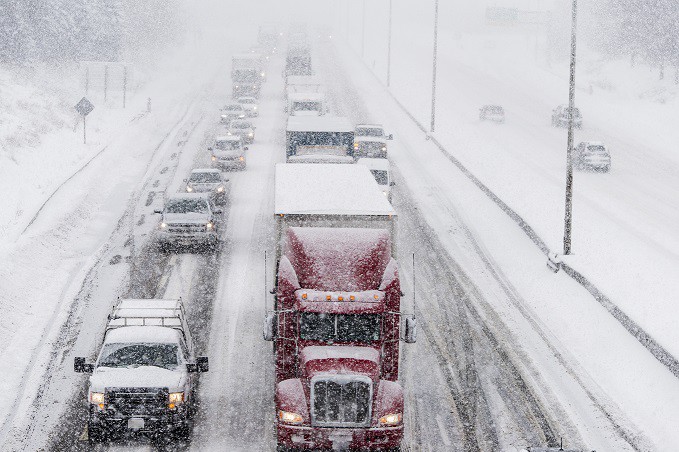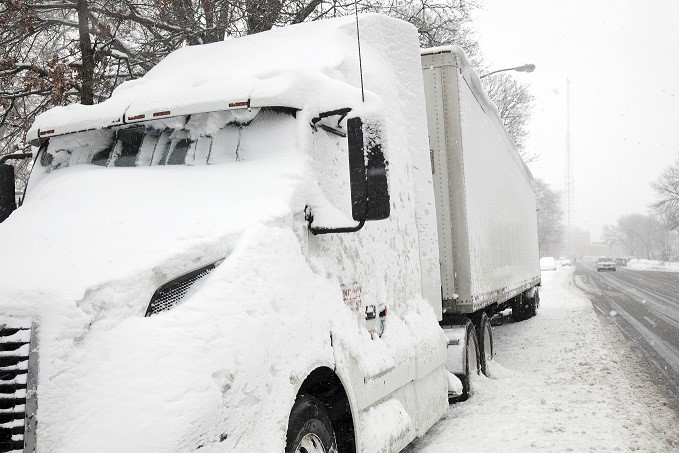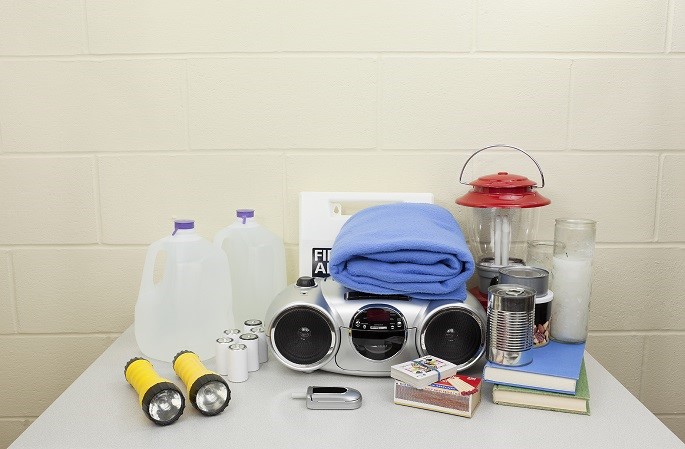 December 9, 2014
December 9, 2014
As weather forecasts predict snow and icy conditions, it’s a good idea for drivers to be prepared for what’s to come down the road. And for truck drivers delivering America’s goods across the country, winter roads present a variety of challenges. A few tips can help make traveling through winter weather a little easier.
Know What’s Ahead
Prior to departure, make sure to get up-to-date weather information about the route you plan to travel. If inclement weather is on the way, it may require a change of route or timing to avoid being stranded or other emergencies.
Also, keep in close contact with home base to communicate if there are weather problems or to get an updated forecast you may have missed along the way.
Other popular equipment such as weather radios come in handy to help drivers stay informed of the latest weather patterns in a region. There are also a variety of weather apps out there to help drivers track things by the device of their choice.
And take special caution when it comes to icy roads. It’s advised not to attempt driving on an icy road. Understand that bridges and overpasses will freeze faster than roads so drivers should exercise extreme caution even though the ice may not be visible, especially with high winds. When there’s been a recent rain and roads are wet and the temperature drops below freezing, take note that no spray from the tires means the rain maybe changing to ice.
Prepare In Advance
Driving in winter weather means making sure your vehicle is ready to function properly as the temperature changes along the route. Check all tires on the vehicle and inflate them to recommended levels. This is especially important during winter weather when tires normally deflate as the thermometer dips.
It’s important to check the vehicle’s fluid levels including the oil and anti-freeze. Keep an extra supply of both engine oil and anti-freeze on hand in case it’s needed.
The vehicle’s fuel also requires special attention during winter driving to prevent gelling. This happens when the additives in the diesel fuel thicken and turn cloudy, typically occurring when temperatures go below freezing. The inclusion of a winter diesel fuel additive is one way to protect against gelling.
Take Caution In Traffic
Heavy snow and icy roads can make it extra difficult to navigate winter roads, so be a little more cautious. It’s advised that heavy trucks try to discard extra mounds of snow from the top of the trailer and other spots where it can accumulate like windows. Chunks of snow from passing vehicles can create a hazard while driving.
Also, make sure all lights are working properly so other drivers can clearly see the vehicle in traffic.
Here are a few additional winter driving tips from AAA.
Pack An Emergency Kit
It sounds like a no-brainer, but often you don’t think of what you will need during an emergency until one occurs. So, take a few extra moments to consider a list of items that would be included in your emergency kit.
A few suggestions include:
- Blankets
- Flashlight
- Batteries
- Water/snacks
- Alternate power sources for electronic devices
- Extra gloves
- Hand warmers
- Extra anti-freeze
- Extra anti-gel
Driving In All Seasons
Our ABCO drivers are ready for whatever the weather brings. We make sure our drivers are well prepared to meet your freight transportation needs. ABCO has a network of terminals across the country with experienced drivers on the road in all seasons. It’s what we do here at ABCO, so connect with us on Facebook or Twitter to let us know how we can help deliver the season’s best.


